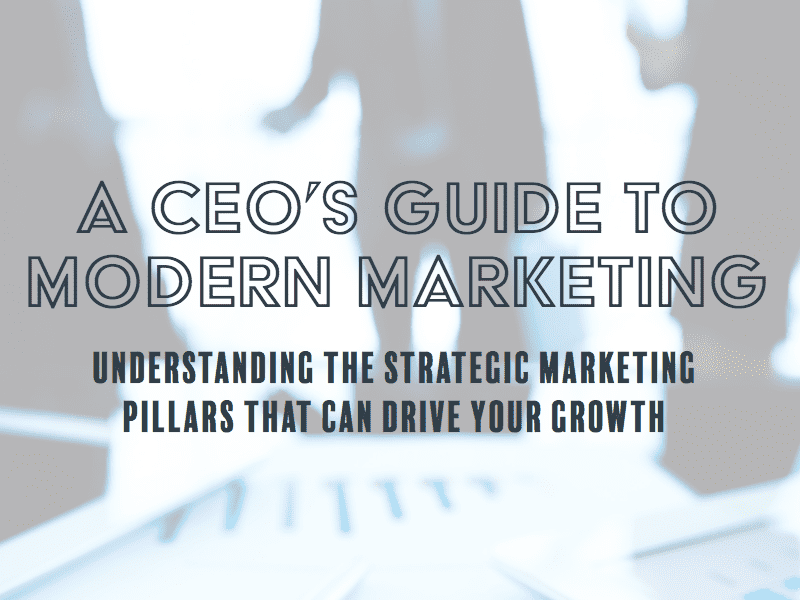Management Consulting Marketing: Do Customers Buy Your Brand or Bodies?
In performing strategic marketing consulting for big management consulting firms, I’ve come to a realization.
Although they can differ widely in terms of their service portfolios, there are only two types of firms: top-down and bottom-up.
Maybe the realization is too simplistic and insulting for an industry of pedigreed professionals offering sophisticated (and at times amorphous) solutions. But I do think I’m onto something.
Buying the Brand: Top-Down Management Consulting Firms
What do Boston Consulting Group, McKinsey & Company, and PWC all have in common?
They’re big companies with prestigious brands.
Customers generally know of these firms and have confidence in their brand promise. That allows these companies to embrace a top-down approach to marketing. They can market based on their brands, rather than individual people and their qualifications (i.e., marketing bodies).
Having worked for three of the Big Four accounting firms, I can tell you that no one bought their services based on my personal MBA and my few years of work experience. And even customers who glanced at the Senior Partners’ bios didn’t seem to care that the partners weren’t doing much of the actual work.
Customers buy the allure of the brand. That means big management consulting firms can staff projects with less-experienced staff, and they make great profit margins doing it.
Buying the Bodies: Bottom-Up Management Consulting Firms
While most of the top management consulting firms are top-down, many middle-market management consulting firms deploy (either proactively or by default), a bottom-up marketing strategy. This means that they rely on the credentials and reputations of their professionals to cultivate new business opportunities.
Here are some of the reasons why middle-market consulting firms often take a bottom-up approach:
- The senior professionals in the business are focused on their customers and working in the business (and its operations), versus growing a firm and brand.
- Many middle-market firms cultivate the bulk of their business through networks and referrals. As such, customers expect to and insist on getting specific professionals on their account, so senior professionals can’t break out of client work.
- Marketing resources are limited, and senior professionals don’t see eye-to-eye as to how marketing dollars should be spent. Typically, a few firm leaders are desire to build a brand. But others, however, don’t believe customers will ever buy the brand over the bodies. And so they stymie marketing efforts.

Hidden Disadvantages of Bottom-Up Marketing
The advantage of the bottom-up approach is that you really don’t need to invest much, if anything, in marketing. Each professional instead needs to cultivate referrals through in-person networking, asking clients directly, and perhaps some minimal LinkedIn activity.
However, there are some big cons of a bottom-up approach to management consulting marketing:
- When a senior professional leaves the firm for a new position or retires, his or her customers have no compelling reason to continue working with the firm.
- Bottom-up firms struggle to hire and train the next generation of millennial workers, who want to feel connected to their company and the purpose of their work. Because of their lack of brand name and marketing presence, bottom-up firms often serve as placeholders while millennials search for jobs in prestigious or purpose-driven top-down firms.
- Because customers have bought bodies, not brands, even if these management consulting firms can hire capable staff, they can’t leverage their less-experienced professionals to do the work.
Opportunities in Modern Management Consulting Marketing
With the bottom-up approach being the norm in the middle market, there is a big—and I mean BIG—opportunity for firms that embrace a top-down approach. Modern marketing is affordable, scalable, and more accessible than ever. And best of all, the return on investment skyrockets after a few years of building a solid marketing foundation.
It’s safe to say that many customers will find a middle-market management consulting brand attractive. Many customers are actively looking for cost-effective, customer-service-oriented options.

So let me ask you. Is your firm greater than the sum of its most-senior professionals?
If not, maybe it’s time to build a brand.
Interested in learning more about how top marketing consulting firms think?
If you’d like to learn more about marketing strategy and building modern growth marketing programs, consider subscribing to our blog.





